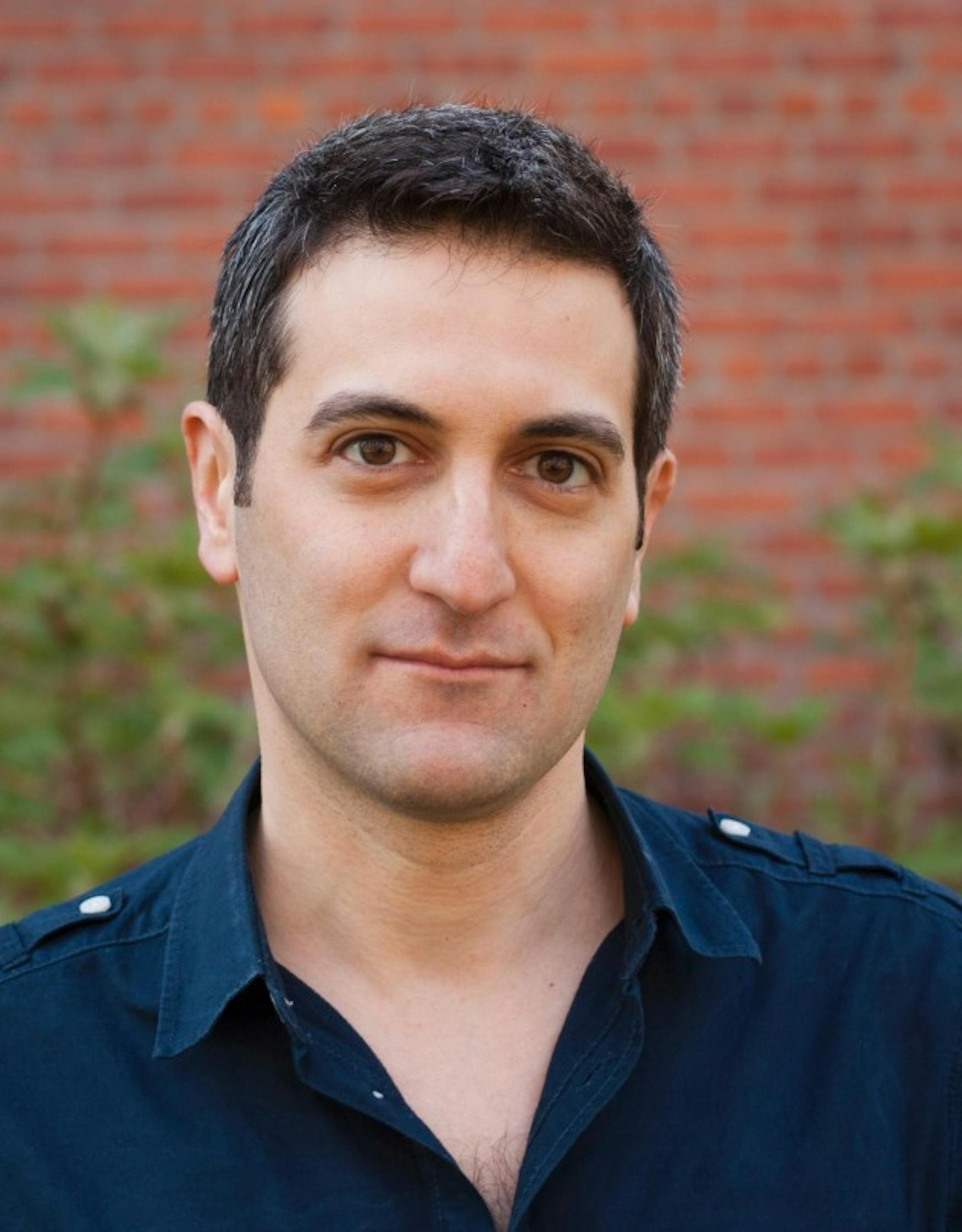Freak-outs made funny
Daniel Smithis i99 comic portrayal of his anxiety rocks Times bestseller list
Few authors would be able to write a New York Times bestselling memoir as a rowdy and uncontrollable ape wreaks havoc on their daily thought processes. For Daniel Smith '99, and his "monkey mind," it has become second nature.
Smith, author of the critically acclaimed Monkey Mind: A Memoir of Anxiety and a contributor for such notable publications as The Atlantic, The New Yorker and New York Times Magazine, has suffered from a lifelong battle with anxiety.
It all began in 1993, the moment in which, at 16 years old, he lost his virginity to a middle-aged woman in an upstate New York motel. Smith's decision to engage in this spur-of-the-moment threesome, and the persistent sexual and moral ruminations that ensued, laid the foundation for his "monkey mind," a mental planet of the apes.
From there, his harrowing journey continued as a student in the "epicenter of anxiety" at Brandeis, through his turbulent years as a staff editor at The Atlantic Monthly, and eventually, to a moment in which his ever-growing anxiety extended into the irrational. Faced with an impending libel lawsuit and failed relationship, Smith stood immobilized at the condiments counter of a Roy Rogers restaurant, convinced that a choice between ketchup and barbeque sauce meant life and death.
In addition to its critical success, Monkey Mind is groundbreaking, as it is the first memoir to confront the pervasive problem of anxiety in American life.
"Although there were many memoirs of depression, there was no book that detailed what it is like to live a life of anxiety," Smith said. "Everyone talked in metaphorical terms about anxiety, either through the lens of clinical or self-help psychology, but no one tethered it to work, family, love and relationships."
Anxiety consumed every detail of Smith's life, figuring prominently in his sexual, professional and even routine decisions. It caused him to wear sweat pads under his armpits and chew his cuticles until they bled. Despite all of this, Monkey Mind reads less like a taxing account of anxiety and more like a stand-up comedy routine.
Smith noted that this memoir marked a return to an approach he had not practiced since his short-lived stint as a humor columnist for the Justice. He diverged from the hard-hitting stories about anxiety and psychotherapy, and instead, just "wrote funny."
"Monkey Mind was something I had not done since my time at Brandeis," he said. "I finally just sat down and reverted back to my humor writing days. While I may have agonized for days, for the first time, I truly enjoyed writing."
Yet, after resigning from the Justice, he channeled his nervous energy as a Brandeis student into one of the most anxiety-inducing professions: acting.
Smith's involvement with the improvisation group False Advertising caused him to emerge as an entirely different person.
He explained that acting allowed him the opportunity to engage with the present and, in turn, dissociate from past and future thoughts that continually plagued him.
"Anxiety is related to time," he said. "I always looked forward to something that could be wrong or reflected upon a past mistake. I wasn't anxious on stage because I immersed myself in the present and displaced time. More importantly, I enjoyed myself."
As Smith reflected on his college experience, he noted that Brandeis allowed him to establish a system of order and expand his scholarly horizons.
"Brandeis signaled to me what would be at the core of my anxiety," he said. "It also allowed me to explore things that presented order and lent me the opportunity to engage in the intellectual world."
Smith used that opportunity to his advantage, beginning his professional career as a staff editor in the hallowed halls of The Atlantic Monthly.
Anxiety didn't figure prominently into this decision. Smith relished the prospect of working with the mythic giants of literary journalism and, after college, brought the battle to the legendary North End office.
"In my college experiences, I discovered that communication was an art form and I wanted to join the priesthood," he said. "I breathed in the air of literary giants and found that journalism was the safe way to get to writing."
It wasn't too safe though. After his highly controversial feature on shock therapy for The Atlantic, the prospects of a lawsuit and the intense criticism overwhelmed Smith's tireless efforts to manage his anxiety. It nearly destroyed his relationship with his future wife and threatened his sanity.
Yet, after the latest chapter in a heated battle with anxiety, Smith is winning the war. He boasts a storied literary career including the publication of his first book Muses, Madmen, and Prophets: Hearing Voices and the Borders of Sanity, currently holds the Mary Ellen Donnelly Critchlow Endowed Chair in English at the College of New Rochelle and is already in the process of writing a third book.
Monkey Mind taught Smith a valued lesson: He learned that anxiety does not preempt the ability to exhibit self-control and change one's lifestyle.
"If I could provide any advice for those suffering from anxiety, it would be that you can actually exert discipline and change habits," he said. "It can in fact change how you think to not be a train wreck."
For Smith, that means his next trip to Roy Rogers will hopefully be a smooth one.



Please note All comments are eligible for publication in The Justice.